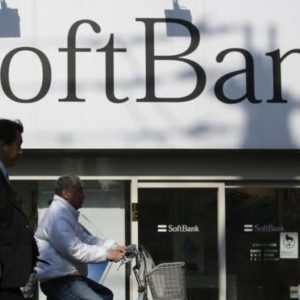The Securities and Exchange Commission (SEC) just released an investigative report warning public financial companies against cyber fraud, but for budding financial technology (fintech) companies there is a more pressing problem.
Many prominent fintech firms like Kabbage, Lemonade and Social Finance (SoFi) are funded by SoftBank, which is backed by Saudi Arabia’s Crown Prince Mohammed bin Salman, who is at the center of the recent scandal involving the disappearance of Washington Post columnist Jamal Khashoggi.
In fact, being linked to the Khashoggi scandal could prevent some fintech firms from getting national bank charters.
Fintech has exploded over the past few years and is poised to significantly disrupt the finance industry. This expansion has prompted states and the feds to spar over whether fintech companies should be regulated at the state or federal level.
Saudis have long been a huge funding source for Silicon Valley, but the Saudi-backed SoftBank and its affiliates have made a point of investing millions in fintech startups like Kabbage, SoFi and others. Kabbage, which lends to small businesses, has received $250 million from SoftBank. Lemonade, which offers renter’s insurance, has received $120 million, and SoFi has received $1 billion. Besides these three, SoftBank has given to dozens of other fintech startups.
Given the SoftBank money trail, regulators may now scrutinize the fintech community much more conscientiously than originally anticipated.
As federal lawmakers’ distrust of Silicon Valley grows, some have scrutinized fintech as an area that needs additional regulatory oversight. Fintech regulation hasn’t gained traction in Congress because the fight over who should charter fintech companies — individual states or the federal Office of the Comptroller of the Currency (OCC) — isn’t resolved, despite experts’ growing fear that unregulated fintech is endangering American consumers.
Last year, Kabbage and a few fintech associations lobbied against a House bill that passed in September and overrides state usury caps on lending, suggesting the fintech community is in favor of federal as opposed to state regulation.
But if those fintech companies want national bank charters, they may want to distance themselves from SoftBank, said Lawrence White, professor of economics at New York University’s Leonard N. Stern School of Business.
“One of the criteria for getting a charter from the OCC is, are the owners of good character?” White told InsideSources in an interview. “It’s written out in legal language, but it’s basically, are they of good character? If you’re a former convicted felon, don’t count on getting an OCC charter any time soon. The OCC has to be concerned about these kinds of links, that in turn has to make the fintech guys concerned and reinforces the idea that they need to find a way to distance themselves [from SoftBank].”
A connection to the Saudi Crown Prince is hardly one the OCC will overlook.
White said the fintech companies should start looking for alternative sources of funding if only to preserve their image to regulators and consumers. Being connected to anything as fishy as the Khashoggi disappearance is a surefire way to get on regulators’ bad side.
“They ask questions like, who are your business partners?” White said. “Where do you get your funding from? There’s just a web of relationships and those aren’t supposed to be shady characters. If you get funding from a shady character, that’s got to raise concerns.”

